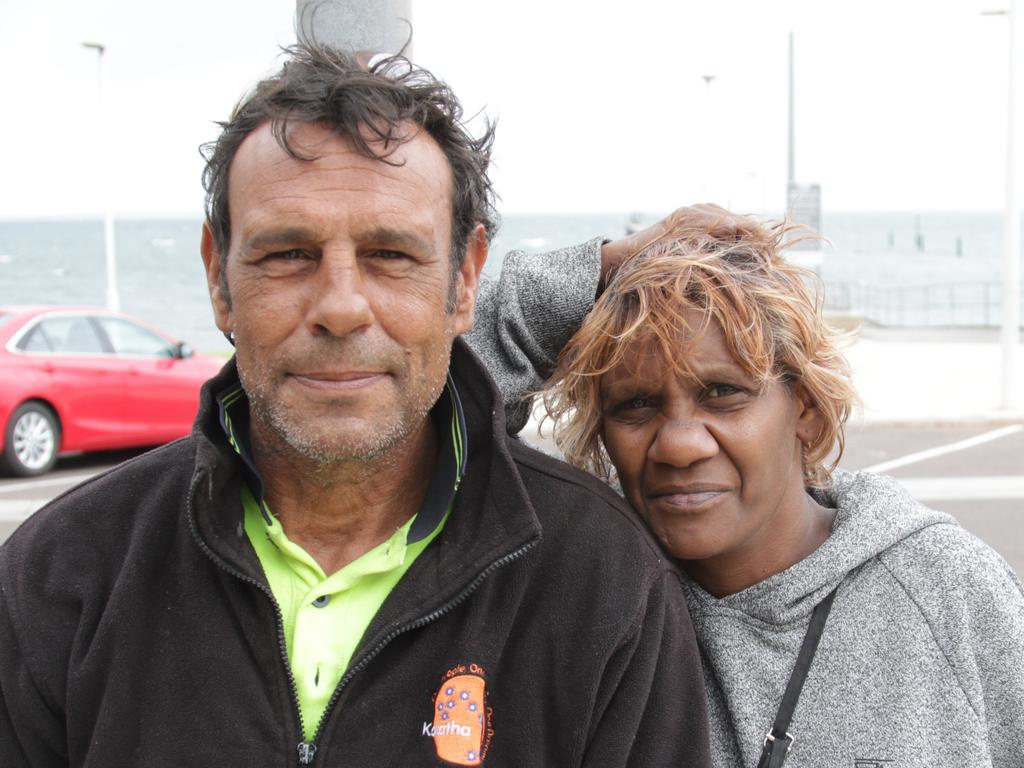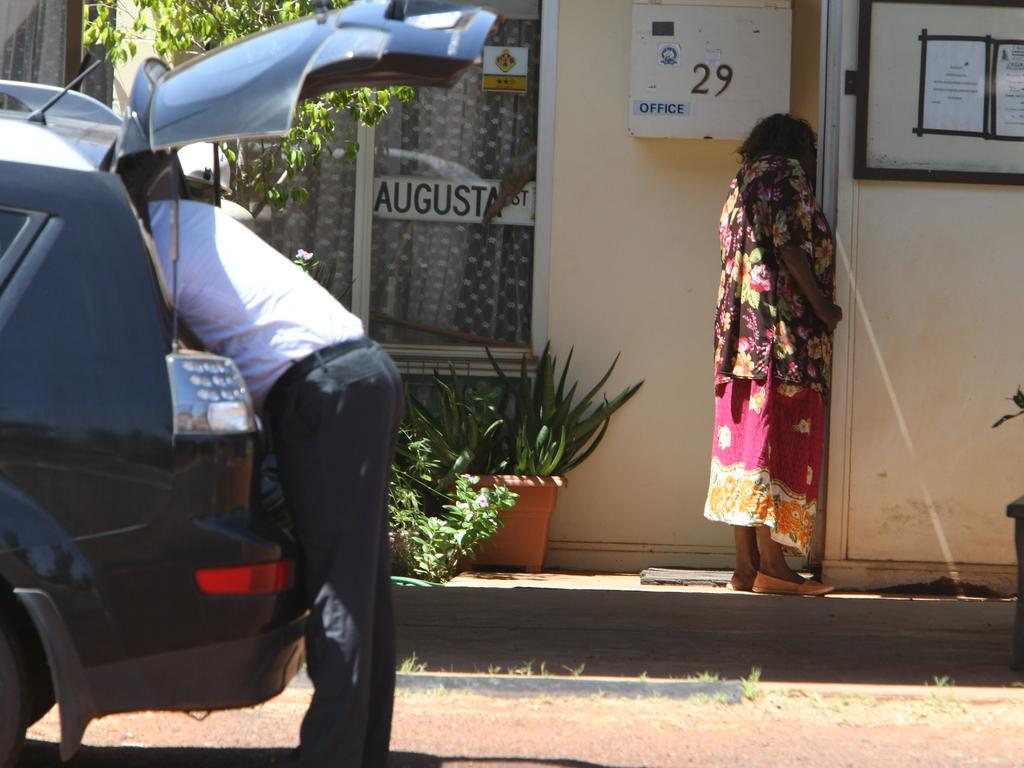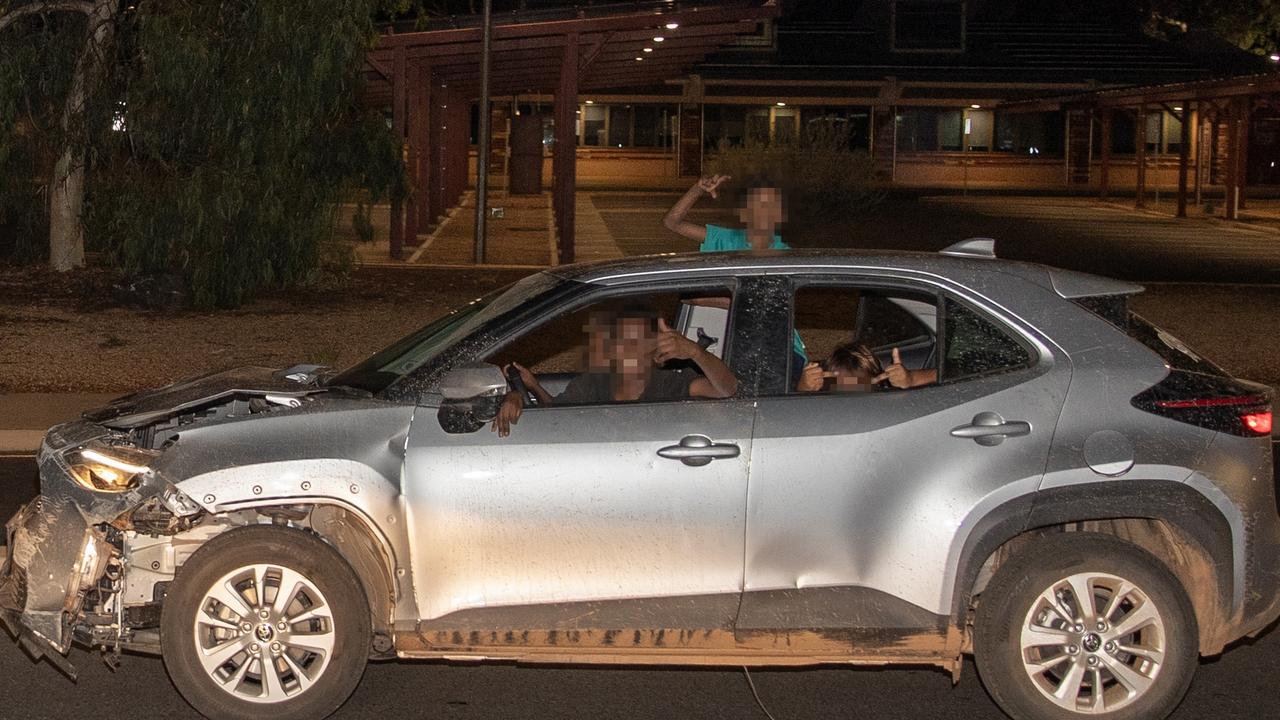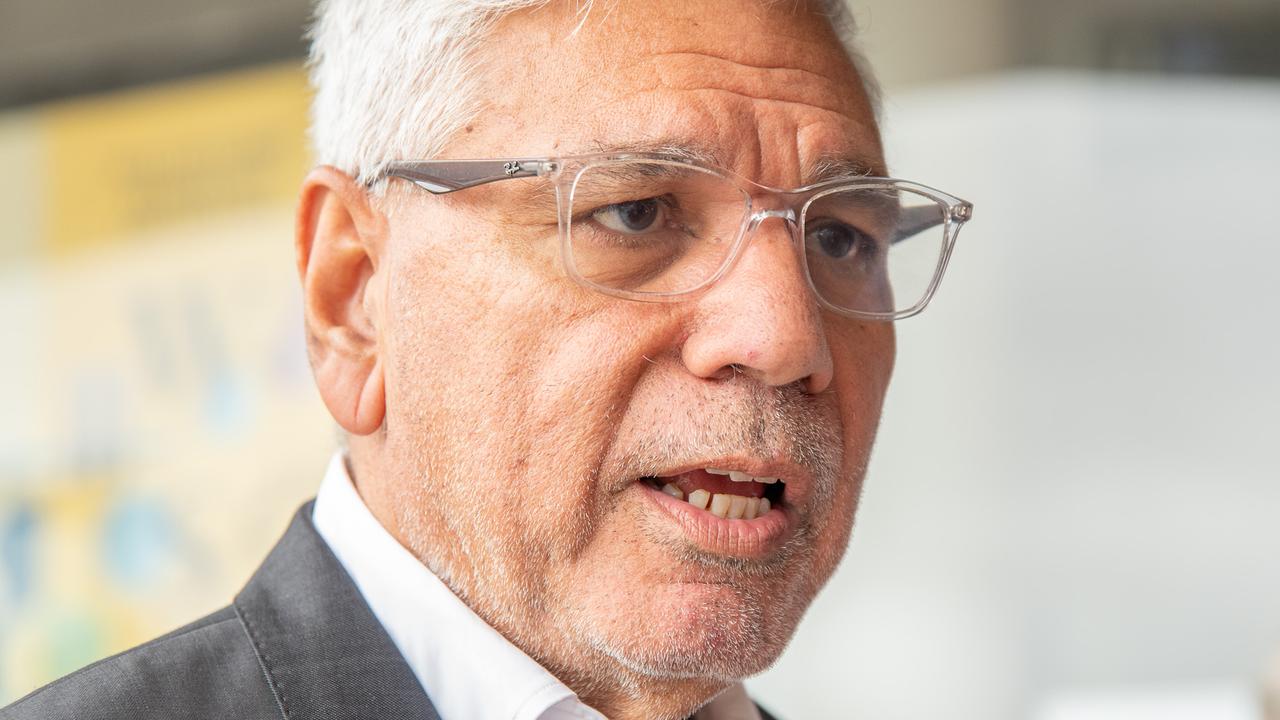Ceduna’s crime rate doubles after cashless debit card abolished
Crime in Ceduna exploded after the abolition of the Cashless Debit Card, with new police numbers confirming the crime rate almost doubled in the SA town.
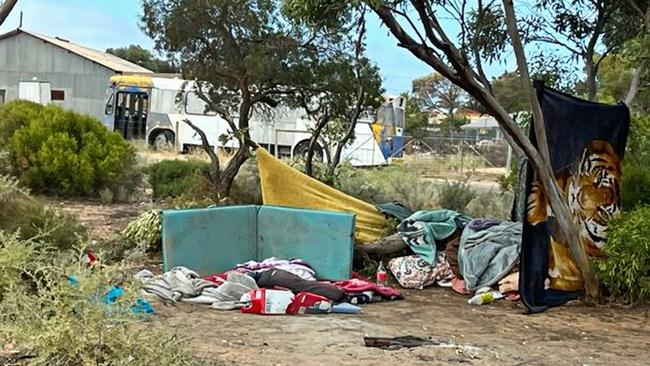
Crime in Ceduna exploded after the abolition of the Cashless Debit Card, with new police numbers confirming the crime rate almost doubled in the South Australian town.
South Australian police data show 111 offences were recorded in Ceduna – population 3000 – in January. This is almost double the number of offences being recorded monthly when the card, which quarantined 80 per cent of welfare payments for some vulnerable recipients – was abolished four months ago, and is almost triple the crime rate of the previous January.
The statistics, uploaded onto South Australia Police’s website, confirm what locals had been saying anecdotally: crime in the town on the edge of the Nullarbor spiked after the card was abolished in October.
Social Services Minister Amanda Rishworth has previously blamed both a funeral and visitors from outside Ceduna for a rising crime rate over Christmas and New Year.
The figures, the most recent available on the South Australian Police website, show the crime rates in January was the highest monthly figure recorded in four years. Ceduna record just 39 crimes the previous January, 51 in January 2021, and 42 in January 2020 – pre-Covid.
Ms Rishworth stood by the decision to abolish the card and said: “The picture of chaos that some are trying to paint of Ceduna as a result of the Cashless Debit Card program ending is just not reflected in fact.
“The Albanese Labor government has delivered on our commitment to abolish the mandatory Cashless Debit Card program and remove restrictions on how social security recipients spend their payments.
“We’ve delivered a long-term and fully funded plan to ensure certainty, choice and support to communities moving off the CDC program.
“The most recent reports I have received from my department is that Ceduna has no issues to report as a result of the CDC program transition.’’
The Coalition introduced the card in 2016 in an attempt to tackle crime, dysfunction and anti-social behaviour in and around Ceduna.
Labor abolished the card as a priority after it was elected last year, saying it was patronising, stigmatising, and unfairly targeted the Indigenous community.
The Weekend Australian has spoken to several business owners and other people who work in the town, all of whom were too afraid of repercussions to be named publicly.
They all acknowledged the influx of outsiders on cultural business, but said those people had left in late December or early January, while the crime problems had persisted for weeks.
There were more than 1000 people on the card in Ceduna when it was abolished, but fewer than 60 were thought to still be on mandatory income management by December.
Outsiders ‘not to blame’
Ceduna resident Richard Wilkinson said he believed the increase in crimes was a result of the abolition of the cashless card and not from the out-of-towners.
Mr Wilkinson said he had lived in Ceduna for 15 years and never had a problem, but was burgled three times over 10 weeks this summer, losing food, alcohol, bedding, and on one occasion his car.
He was forced to install a security camera and spotlights, which this week captured a woman sneaking up to his house at midnight but quickly disappearing once the lights came on.
“It’s definitely got worse since the card was abolished,’’ Mr Wilkinson said.
“The crimes up, the drinking’s up. The police do a great job but they’re sick of it.’’
He said the man who allegedly burgled his house and stole his car was immediately bailed, and went on to assault a woman two days later, which resulted in him being jailed.
He said that if the man had been jailed after he was caught stealing his car, the woman would have been spared the assault.
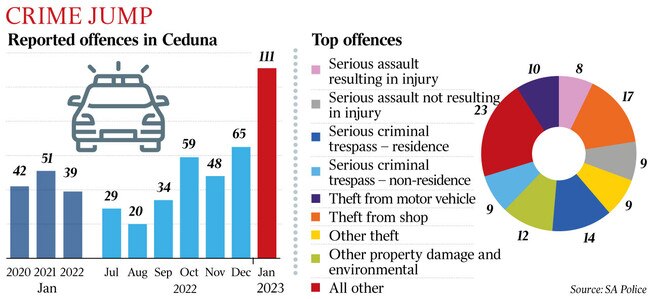
Ceduna mayor Ken Maynard said he still believed the abolition of the card was being conflated with crime caused by outsiders, who had come down from the traditional lands for cultural business in December and early January.
He said the loss of the card had caused some issues but “not to the extent some people will tell you”.
“It would have had some impact but nothing that couldn’t be handled,’’ Mr Maynard said.
“There was an influx of people, it was just unfortunate it was at the same time the card disappeared.’’
Opposition social services spokesman Michael Sukkar called on the government to reverse its decision to abolish the CDC for 13,000 welfare recipients across South Australia, Western Australia and Queensland.
“Labor was repeatedly warned that abolishing the compulsory Cashless Debit Card would lead to drugs, alcohol and violence being unleashed into vulnerable communities,’’ Mr Sukkar said.
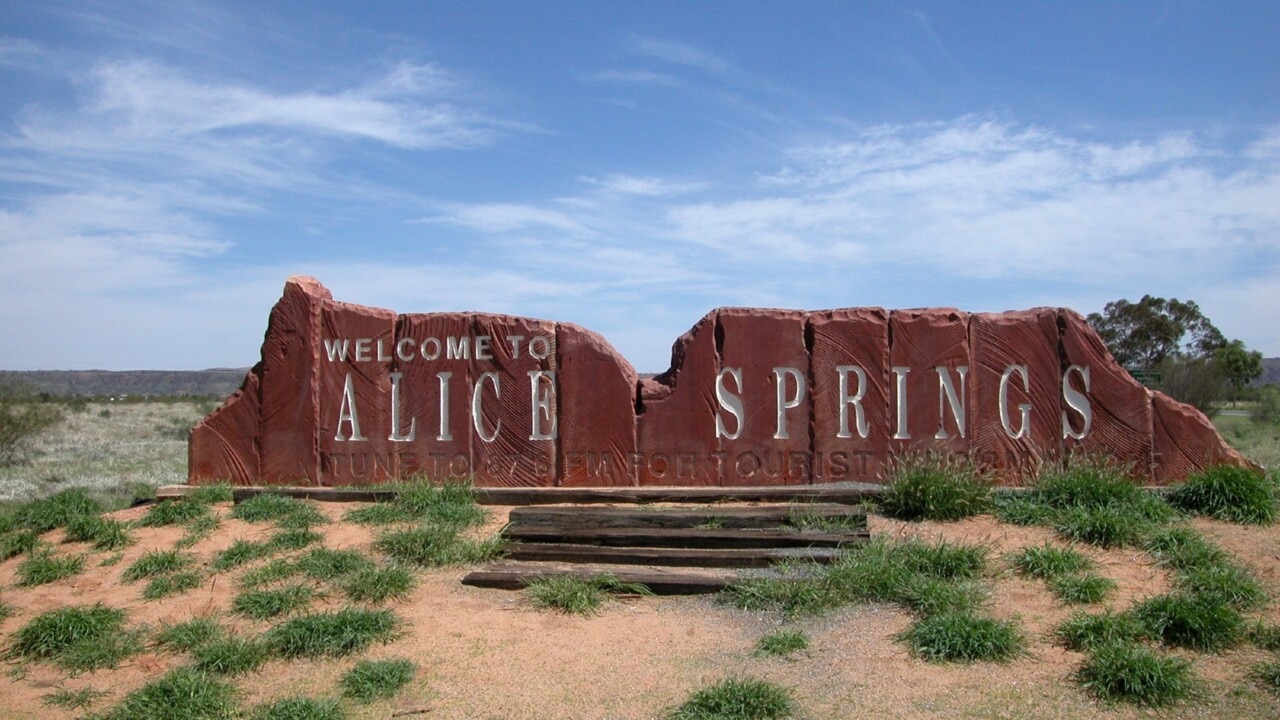
“We are now seeing the entirely predictable and devastating evidence of Labor’s decision to repeal the CDC, with crime rates through the roof and misery being inflicted, predominantly on women and children.’’
Former mayor of Ceduna Allan Suter, a strong advocate for the card, said the visitors to the town had mostly left between Christmas and New Year and were not to blame for the entire crime wave in January.
He said problems were continuing in Ceduna, with a new rough sleeper camp going up along the heavy vehicle bypass, which he feared put the camp occupants in grave danger.
“They are heavily intoxicated, camped right on the edge of the heavy vehicle bypass, staggering about at night in dark clothing, and it’s just a matter of time,’’ he said. “Sober, you wouldn’t find a nicer bunch of people. Drunk, they’re idiots. And unfortunately they don’t spend a lot of time sober.’’
Mr Suter, a neighbour of Mr Wilkinson’s and a Liberal Party volunteer, said he feared problems would get worse, with another busload of people coming from dry communities arriving into the town on March 8 with no accommodation.
The Ceduna Golf Club has put barricades across its driveway to stop the local bus dropping rough sleepers off on the golf course where they have set up makeshift camps.
Domestic violence
Local police sergeant Chris Lovell addressed the Ceduna council meeting last week and told councillors the crime peak had passed and “we weathered that storm”.
“We obviously saw a spike for a number of reasons that we have spoken about before,’’ he said.
He said police had been tasked 422 times in December, when there were 146 victim-reported crimes, and 42 people arrested.
In January, police were tasked 418 times, there were 200 victim-reported crimes, and 50 arrests. Between February 1 and March 3, Ceduna police had been tasked 381 times, with 138 victim-reported crime and 25 arrests.
Sergeant Lovell said the majority of the crimes recorded were domestic violence matters.
Superintendent Paul Bahr, Officer in Charge, Eyre Western Local Service Area, did not directly respond to a question about whether the abolition of the CDC had contributed to the crime spike.
“Crime trends in Ceduna, as in other areas of the state, tend to fluctuate according to the seasons,’’ he said.
“Each summer Ceduna becomes a centre and meeting place for many people to escape the heat of traditional lands across Australia.
“This is in addition to the annual influx of tourists and visitors to our beachside town during the holidays.
“This year also saw an additional population surge due to cultural business in Ceduna for the first time in 22 years.
“The temporary increase in population, the festive period and the warmer weather can be expected to be reflected in increased crime statistics.”


